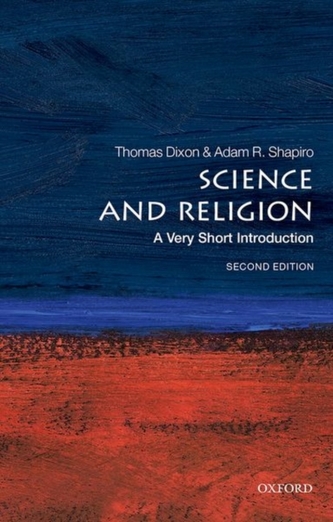What is the relationship between science and religion? Do they contradict one and another, or rather complement each other. And is there still a place for religion?
I love A Short Introduction Series. They are amazing in providing a reader a condensed information about given topic. In this case, science and religion.

Age of Science: A New Religion?
Are there inherent conflicts between science and religion? Yes. But, as I suspected, there are also many similarities or points where the two can complement each other.
I am convinced that there is place for both science and religion in today’s world (and I am saying this as an atheist/agnostic).
These two systems simply serve to different purposes. Science is best at describing the world we live in but, as opposed to religion, it cannot give us comfort or hope. I do not need to go outside the realms of our natural world in order to find meaning of life (it’s 42 anyway), I don’t see any reason why others could not (as long as they do not force their views onto others).
As to the similarities, when reading (listening) the book it has become apparent that people referring to science may often infer what “ought to be” based on what “is” in the nature (e.g. in relation to ethics and morality).
However, the nature is inherently telling us nothing of the sort. This is principally just the same as in case of religion providing guidance as to what “ought to be” based on what “is” written in the sacred scriptures.
Structurally, at least as far as the effects are concerned, the two systems are quite similar. Is it possible that science is therefore also a religion of the sort? And that the “age of traditional religion” has advanced to the “age of science”?
From Galileo to Evolution
The author provides a concise introduction to the topic using the story of Galileo Galilei and his conflict with Catholic Church, as well as the quarrel between theory of evolution and that of intelligent design (creationist theory).
It is very interesting and if nothing else, it illustrates how the topics such as these often show many layers of thought.
Is God to be found only in gaps or is it in everything around us (pantheism)? Is God basically indifferent to what is happening in the world (deism) or capable of interfering in human affairs, as well as natural laws, at its whim, or even be meddlesome at times (theism).
This is directly connected to a more philosophical question of what is God? A question leading to discussion which is far from having just two end points – either “there is no God” or “there is God and he is omnipotent”.
Without any deeper knowledge of the philosophical aspects of religion and building only on my thoughts (perhaps quite simple and layman’s in very nature), unencumbered with voluminous actual research on the matter, I think that if we are to accept on a very basic level that the God (be it nature, principle, universe or whatever) is an (personified) abstraction of either unknown or known (or both), it sheds a new light to this entire discussion of how the science and religion could be reconciled.
Natural world to science, salvation to religion (but only for those who care for it)
Admittedly it is hard for me to understand notions of God which identify it with actual person or entity. This is the result of essentially taking what is in the scriptures (e. g. Bible) too literally, which leads me to the question of the nature of Bible.
I, for one, think of Bible as an interesting literary heritage. But should it be taken literally? No. However, this does not mean that it cannot contain certain wisdom coded into the lines featured therein.
I like the idea that Bible is to be constantly interpreted (St. Augustine) since regard must be had to the fact that it was written at times of a historic and socio-economic context very much different from that of today’s world. But I cannot help but thinking that relying on the revelations written therein in matters revolving around our understanding of the fabric of reality, is a bit outdated.
After all, as author provided in the book, already back in times of Galileo Galilei, the question was to what extent should Bible (and the Church) have to be relied upon when it comes to the matters revolving around our understanding of physical reality.
Nowadays, it is more or less accepted, at least in the western part of the world, that the science should have the upper hand in that. But as I stated at the beginning of this review, I do not think that this should prevent religion of its purpose.


